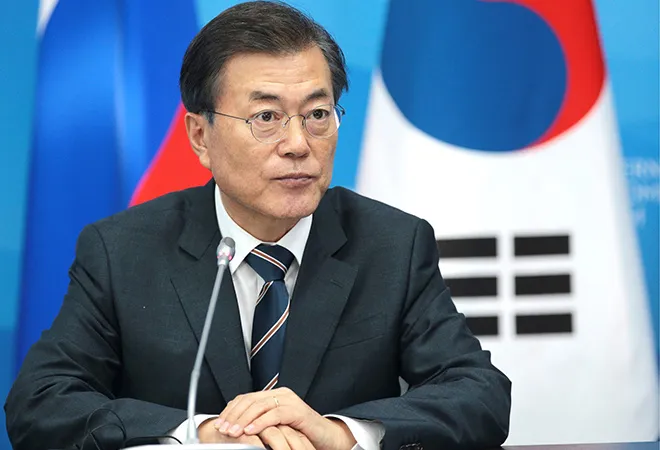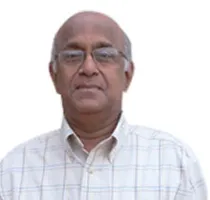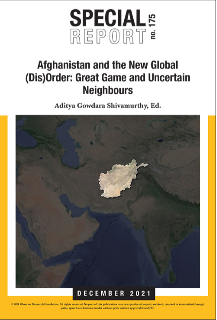
At last, some very significant developments have taken place on the Korean Peninsula, confirming that diplomacy, if skillfully pursued, could produce some tangible results. President Moon Jae-in, ever since his election to the presidential office last year, has shown his resistance to adopting a military solution to the North Korean tangle. Though a long-time ally of the US, in all his talks with President Donald Trump, he portrayed himself as a leader more inclined to adopt conciliatory measures towards Pyongyang. He knew that any attempt to seek a military solution to the North Korean issue would be catastrophic to both North and South Korea. One should remember that Moon came to power last year on a plank that promised to promote dialogue for exploring a peaceful reconciliation with North Korea. He made it known to the US and its allies that he was far more grounded in the regional strategic realities when it came to finding a solution to Pyongyang’s nuclear intransigence.
The presence of the North Korean delegation in the 2018 Winter Olympics marked the highest level cross-border diplomacy in the Seoul-Pyongyang relations at least since 2007. The whole narrative started with the 2018 New Year message of North Korean leader Kim Jon Un. He said, “North and South must work together to alleviate the tensions and work together as a people of the same heritage to find peace and stability.” He further expressed his desire for his country’s participation in the winter Olympics. President Moon picked it up with considerable alacrity and called it “an epoch-making opportunity to improve inter-Korean relations and establish peace.”
President Moon displayed great statesmanship in taking advantage of the Winter Olympics at Pyeongchang to achieve at least some limited thaw in the bilateral relations with Pyongyang. Considering the event as “peace Olympics”, he went all out to ensure the North Korean participation. It is even reported that the high cost of hosting the 230 odd North Korean delegation was borne specially from the South Korean annual budget. Second, he was also keen to see that the two Koreas could participate as joint participants under one banner.
Officials of both countries conducted joint talks and succeeded in hammering out an arrangement by which North Korea agreed to send its contingents for participation in the sports event along with South Korean team under the same banner. That the North Korean supreme leader Kim Jong Un named his sister Ms. Kim Yo Jun and the nominal head of State Kim Yong Nam to lead the contingent sounded quite positive. It was an unprecedented sight to see cheer leaders from North and South Korea encouraging a combined North-South team playing together in an event.
President Moon extended utmost courtesies to the Korean delegation and Ms. Kim Yo Jun herself drew a great deal of attention at the opening ceremony. Her visit, though very brief, seems to have created considerable warmth and understanding between the two countries. At the end of her stay, she also handed over a message from Kim to President Moon inviting him to North Korea at “an early date” for a bilateral summit. In addition, she hoped that “Pyeongyang and Seoul will become closer in the hearts of Koreans and will bring unification and prosperity in the near future.”
Kim’s invitation to Moon has divided public opinion, particularly in the US and Japan. Even within South Korea, despite the euphoria resulting from North Korea’s participation, there are many sections of the population who seriously doubt the sincerity of the North Korean leader. Many have accused Kim of successfully hijacking the Winter Games for boosting his own image. They have asserted that any Kim-Moon summit meeting without a precondition on the denuclearisation issue would only benefit the North "to buy more time for completing its nuclear capabilities and fool us with their peace offensive façade".
As for the US and Japan, they have maintained close consultations and agreed to maintain their maximum pressure on the North. Vice-President Mike Pence in his talks with both Shinzo Abe and Moon stressed the need for the three countries to continue their unified policy. During his stay in South Korea, Pence refused to talk to North Korean leaders and kept them at a distance. However, after returning to Washington, Pence seems to have softened his position by stating that while the US would maintain a “maximum pressure campaign” against Pyongyang, it would also be open to possible talks at the same time.
As for Japan, Abe extended his strongest support to the US and other allies for ending North Korea’s nuclear and missile threats. In his meeting with Moon in Seoul at the time of the Olympics, Abe cautioned him against the charm diplomacy of Kim Jong-un. His Foreign Minister Taro Kono, during his recent visit to Singapore, had said that the world should not be “fooled by North Korea’s smile diplomacy.” He even urged the Singapore government to strictly enforce all UN Security Council sanctions against the North.
But the unified position of the US-Japan came under scrutiny after the above-mentioned remarks made by Vice-President Pence in Washington and this culminated in a telephonic conversation between President Trump and Abe that confirmed that (a) maximum pressure on the North would be maintained until it abandoned its nuclear and missile programmes and (b) there would be no meaningful dialogue unless Pyongyang agreed on “complete, verifiable and irreversible and denuclearisation.”
It is reported that Moon might seek ways to pursue engaging North Korea like trying to arrange more reunions for divided families. But the crucial question is whether Moon would be inclined to hold separate peace talks with the North behind the back of the US and Japan.
The views expressed above belong to the author(s). ORF research and analyses now available on Telegram! Click here to access our curated content — blogs, longforms and interviews.



 At last, some very significant developments have taken place on the Korean Peninsula, confirming that diplomacy, if skillfully pursued, could produce some tangible results. President Moon Jae-in, ever since his election to the presidential office last year, has shown his resistance to adopting a military solution to the North Korean tangle. Though a long-time ally of the US, in all his talks with President Donald Trump, he portrayed himself as a leader more inclined to adopt conciliatory measures towards Pyongyang. He knew that any attempt to seek a military solution to the North Korean issue would be catastrophic to both North and South Korea. One should remember that Moon came to power last year on a plank that promised to promote dialogue for exploring a peaceful reconciliation with North Korea. He made it known to the US and its allies that he was far more grounded in the regional strategic realities when it came to finding a solution to Pyongyang’s nuclear intransigence.
At last, some very significant developments have taken place on the Korean Peninsula, confirming that diplomacy, if skillfully pursued, could produce some tangible results. President Moon Jae-in, ever since his election to the presidential office last year, has shown his resistance to adopting a military solution to the North Korean tangle. Though a long-time ally of the US, in all his talks with President Donald Trump, he portrayed himself as a leader more inclined to adopt conciliatory measures towards Pyongyang. He knew that any attempt to seek a military solution to the North Korean issue would be catastrophic to both North and South Korea. One should remember that Moon came to power last year on a plank that promised to promote dialogue for exploring a peaceful reconciliation with North Korea. He made it known to the US and its allies that he was far more grounded in the regional strategic realities when it came to finding a solution to Pyongyang’s nuclear intransigence.
 PREV
PREV


